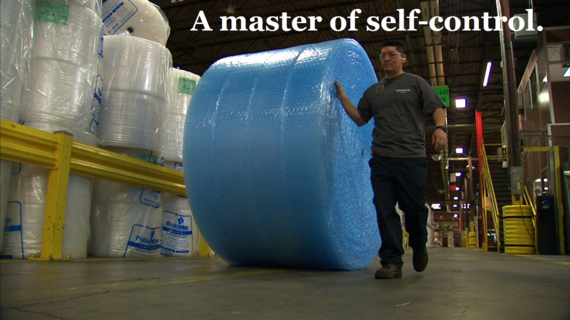It was 2 o'clock on a Saturday afternoon. The workweek was almost over for me.
"You've already done so much this week," I told myself. "It's okay if you aren't entirely productive on a Saturday," I said in my mind.
"It's okay to take a little break," I assured myself. "Just one or two games."
Three and a half hours later, I was still playing chess online. I had forgotten how addictive playing online can be.
The site keeps track of chess rankings, so every game represents a chance to improve one's ranking. I never know who I'm going to play and what type of style they have. And, the 6-minute time control ensures that there's always time for "just one more game."
That Saturday afternoon was quite a wake-up call for me. I realized that I still have a lot of work to do in terms of developing self-control.
I'm not saying that we shouldn't take time to unwind.
But that Saturday I had a lot to do that would have been much more meaningful than playing chess, and I didn't get it done because I lacked the self-control to either only play one or two games, or none at all.
Self-Control is Essential
I don't think there's much debate about how essential self-control is for being successful both personally and professionally. When we think of the traits of the most successful people, the ability to restrain oneself from acting or speaking in unskillful ways is likely near the top of the list.
After my Saturday afternoon lost to the world of online chess, I decided to re-commit to applying the practices that I know work so well.
Structure Guided By Purpose
It's much easier to have self-control when we're away from any temptations. So I made it a point to create some rules for myself at a time when I was not subject to the temptation of chess, while I was out for a walk.
I reflected on how much more fulfilled and happy I am when I devote my energy to serving others and making an impact in our world. I committed to refraining from seeking out temporary distractions from the sometimes mundane tasks that need to be completed to create more opportunities to serve.
My compromise was this: I would allow myself one hour of chess playing -- no more, no less -- once per week.
If there was any other time I found myself craving a game of chess, I committed to practice sitting or walking in mindfulness. This practice is actually a more effective way to unwind, and simultaneously increases our capacity to effectively serve and care for the people around us.
That's a much better outcome than what I get from playing chess online.
Freedom In the Moment
With this new commitment, inspired by a purpose that makes the commitment very easy to stick with, I have found that I have much more of a willingness to skillfully deal with the energy of compulsion when it arises.
Fortunately, the practice of mindfulness helps us to effectively deal with compulsion.
Whenever we feel a compulsion to do or say something unskillful, we can simply stop and apply the practice of mindfulness.
We recognize, non-judgmentally, that there is a desire present. We close our eyes and investigate how that desire manifests in the body (typically as tension and a feeling of restlessness). If the compulsion is very strong, we can go for a walk while doing this practice (you may want to do this with your eyes open).
As we stay with this awareness of the body, the tension tends to loosen up, the restlessness fades, and the thoughts that fuel the compulsion lose their ability to pull us around. Whenever the mind tries to suck us back into compulsion with that tricky inner voice, we just recognize it and keep our awareness firmly placed on the body and its sensations.
After a few seconds or minutes, the energy of compulsion passes. We are able to avoid activities that leave us feeling empty and disappointed in ourselves.
Instead, we can apply our energy to activities that leave us feeling happy, productive, and fulfilled.
Matt Tenney is a social entrepreneur, an international keynote speaker, and the author of Serve to Be Great: Leadership Lessons from a Prison, a Monastery, and a Boardroom.
